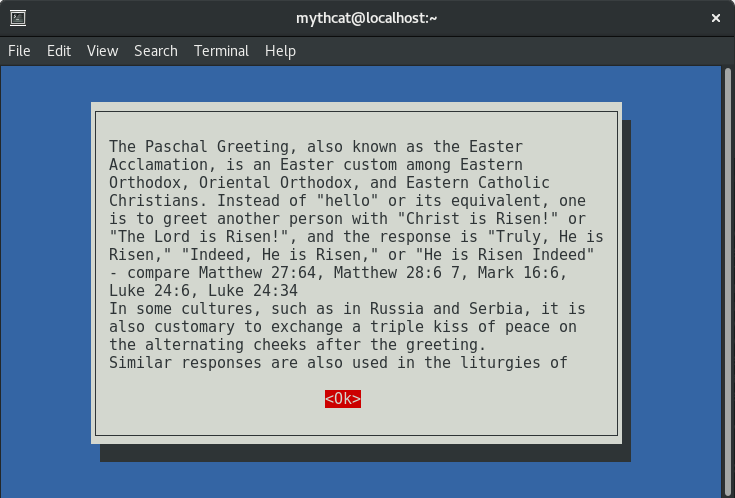I used Fedora 25 and python 2.7.13 version.
First try to use this command:
pip freeze --local | grep -v '^\-e' | cut -d = -f 1 | xargs -n1 pip install -U- to skip "-e" package definitions;
- the newer versions of pip allow you to list outdated python modules;
- added -n1 to xargs, prevents stopping everything if updating one python module fails;
...fatal error: Python.h...[root@localhost mythcat]# dnf install python-devel.x86_64 python-devel.i686Another example is this lib: opensslv.h
So install this:
[root@localhost mythcat]# dnf install openssl-devel.x86_64
Last metadata expiration check: 1:58:33 ago on Thu Apr 20 18:52:10 2017.
Dependencies resolved.
================================================================================
Package Arch Version Repository Size
================================================================================
Installing:
openssl-devel x86_64 1:1.0.2k-1.fc25 updates 1.5 M
Transaction Summary
================================================================================
Install 1 Package
Total download size: 1.5 M
Installed size: 3.1 M
Is this ok [y/N]: y
Downloading Packages:
openssl-devel-1.0.2k-1.fc25.x86_64.rpm 580 kB/s | 1.5 MB 00:02
--------------------------------------------------------------------------------
Total 394 kB/s | 1.5 MB 00:03
Running transaction check
Transaction check succeeded.
Running transaction test
Transaction test succeeded.
Running transaction
Installing : openssl-devel-1:1.0.2k-1.fc25.x86_64 1/1
Verifying : openssl-devel-1:1.0.2k-1.fc25.x86_64 1/1
Installed:
openssl-devel.x86_64 1:1.0.2k-1.fc25
Complete!pip freeze --local | grep -v '^\-e' | cut -d = -f 1 | xargs -n1 pip install -U[root@localhost mythcat]# pip list --outdated --format=freeze
CCColUtils==1.4
cryptography==1.5.3
evdev==0.6.1
fedmsg==0.18.2
ipykernel==4.5.2
M2Crypto==0.25.1
matplotlib==1.5.2rc2
mercurial==3.8.1
mysqlclient==1.3.7
psutil==4.3.0
pycryptopp==0.6.0.1206569328141510525648634803928199668821045408958
pyopencl==2015.2
pyOpenSSL==16.0.0
pyxattr==0.5.3
requests-kerberos==0.10.0
service-identity==14.0.0
Sphinx==1.5.3
SQLAlchemy==1.1.6
Tempita==0.5.1
tornado==4.4.2
Twisted==16.3.0
txZMQ==0.7.4
[root@localhost mythcat]# pip list --outdated --format=freeze
mysqlclient==1.3.7
pyopencl==2015.2
pyxattr==0.5.3
